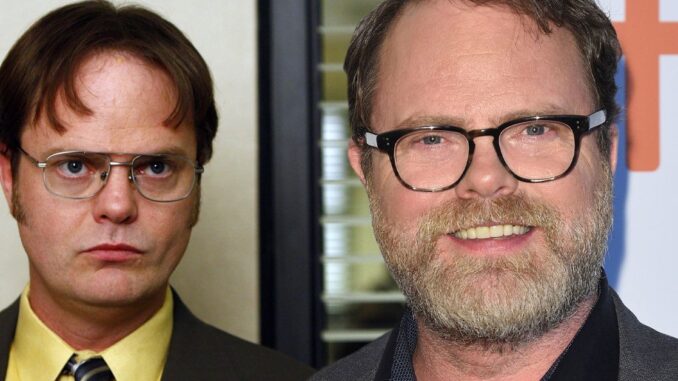
The Schrute Effect: Rainn Wilson's Take on Why The Office Pulled the Plug
Rainn Wilson, the actor who brought the endearingly bizarre and eternally quotable Dwight K. Schrute to life, isn’t just a funnyman. He’s a thoughtful observer, a comedian with a philosophical bent, and, importantly, a pragmatist. So, when he reflects on why The Office ended after nine seasons, his insights aren't just anecdotal. They provide a compelling glimpse into the complex forces that shaped a beloved television phenomenon. His reasoning, often peppered with his signature quirky humor, centers around a potent mix of creative fatigue, the lure of individual growth, and the ever-present pressure to leave a legacy untarnished.
One of the primary arguments Wilson presents, and one that resonates deeply with many viewers, is the natural progression of a story arc and the inherent risk of creative stagnation. After nine seasons, the Scranton branch of Dunder Mifflin had arguably weathered every conceivable storm. We witnessed epic romances blossom and flounder, we endured cringe-worthy mishaps and triumphant victories, and we watched characters evolve (and, in some cases, stubbornly refuse to). Wilson has alluded to the challenges of maintaining the show's creative spark, suggesting that the writers, despite their undeniable talent, were facing the daunting task of constantly reinventing the wheel. The potential for "jumping the shark," a phrase often uttered with reverence and dread in television circles, loomed large. Better, he implies, to end on a high note, leaving viewers wanting more, than to witness a slow, agonizing decline into irrelevance.
Beyond the narrative constraints, Wilson also points to the individual ambitions and growth of the cast members as a contributing factor. The Office served as a launchpad for many careers, and as actors like Steve Carell, John Krasinski, and Jenna Fischer (and, of course, Wilson himself) honed their craft and gained recognition, the desire to explore new opportunities naturally arose. Wilson, in interviews, has spoken of the temptation to break free from the rigid schedule of a network sitcom and pursue diverse projects that allowed him to stretch his acting muscles. The pull of Hollywood, with its promise of diverse roles and greater creative control, proved irresistible. In essence, the very success of The Office ironically contributed to its eventual demise, as its stars were catapulted into orbits that demanded their individual attention.
Furthermore, Wilson touches upon the delicate balance between satisfying loyal viewers and preserving the integrity of the show's established world. As the series progressed, the pressure to cater to fan expectations undoubtedly increased. The writers likely faced the daunting task of navigating the treacherous waters of shipping wars, fan theories, and the clamoring for beloved character pairings. While fan engagement is undeniably vital to the success of any television show, it can also stifle creative freedom and lead to storylines that feel forced or contrived. Wilson suggests that the decision to end the show allowed the creators to avoid succumbing to the pressure of constantly pleasing everyone, and instead, to craft a final season that stayed true to the spirit of the series.
In the end, Rainn Wilson's explanation for the conclusion of The Office isn't a simple one. It's a multi-layered reflection that acknowledges the complexities of television production, the ambitions of its cast, and the desire to leave behind a legacy that resonates with viewers for years to come. It's the "Schrute Effect" in action: a practical, slightly cynical, yet ultimately pragmatic assessment of the situation. Like Dwight himself, The Office knew when to harvest its beet crop and move on to the next adventure. And for that, fans remain eternally grateful.